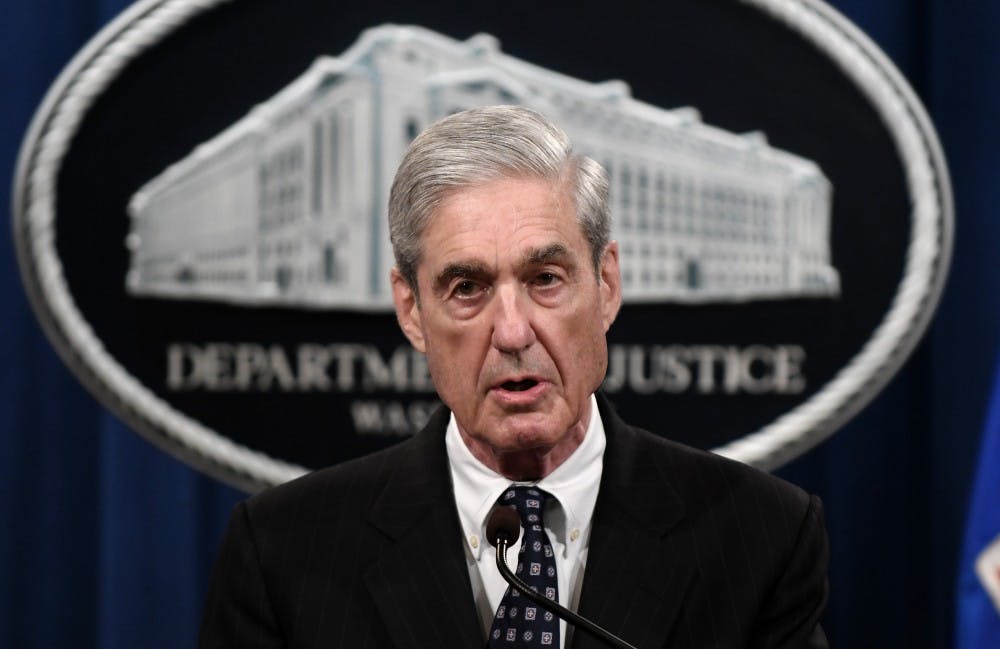WASHINGTON — Robert S. Mueller III, in his first congressional testimony on the Russia probe, directly contradicted President Donald Trump's false claims that he was exonerated by the investigation and said he considered the Russian meddling in the 2016 presidential campaign a direct threat to American democracy.
"Over the course of my career, I've seen a number of challenges to our democracy. The Russian government's effort to interfere in our election is among the most serious," Mueller said at the start of the high-stakes hearing.
Mueller, 74, provided mostly staccato yes and no answers to inquiries from Democrats and Republicans, who tried to maximize their limited opportunity to interrogate the former FBI director about what he did and did not do during the Russia investigation.
"Did you actually totally exonerate the president?" asked Rep. Jerrold Nadler, a New York Democrat and chairman of the Judiciary Committee.
"No," Mueller responded.
The former special counsel also confirmed that Justice Department guidelines prevent charging a sitting president with a crime, so prosecutors did not consider whether Trump had broken the law. But Mueller said a president could be indicted after leaving office.
Republicans worked to undermine confidence in the investigation and accused Mueller of overstepping his bounds by declaring that Trump was not exonerated.
"The bedrock principle of our justice system is the presumption of innocence," said Rep. John Ratcliffe, R-Texas. "Everyone is entitled to it, including sitting presidents."
Mueller said he agreed to the special counsel appointment in May 2017 because he believed the investigation "was of paramount interest to the nation."
"We worked quietly, thoroughly and with integrity so the public would have full confidence in the outcome," he added.
The former special counsel, who was subpoenaed by House Democrats, is scheduled to appear for three hours before the House Judiciary Committee and then two hours more before the House Intelligence Committee.
Mueller has vowed to only discuss material that appeared in the public version of his 448-page report, which was released in mid-April. The Justice Department this week officially directed him not to stray from the report's written findings.
But lawmakers took turns trying to nudge or goad Mueller to answer additional questions in the nationally televised hearings.
In his opening statement, Nadler praised Mueller's service as special counsel and said Congress had a responsibility to address the evidence he uncovered.
"You recognized as much when you said 'the Constitution requires a process other than the criminal justice system to formally accuse a sitting president of wrongdoing,'" a reference to Mueller's report.
The first hearing is expected to focus on the second half of Mueller's report, which examines whether Trump obstructed justice by trying to end or limit the Russia investigation. The second hearing will deal mostly with Moscow's interference in the 2016 election by hacking and releasing internal Democratic Party emails and spreading disinformation on social media.
Democrats hope to capitalize on Mueller's testimony to highlight what they consider serious wrongdoing by Trump, including embracing Russian assistance to his campaign or trying to fire the special counsel — episodes they say have not received adequate public attention.
Some Democrats see Mueller's testimony as their last best chance to build public support to start impeachment hearings against the president. A House vote last week found only 95 Democrats willing to consider an impeachment resolution, less than half those needed to pass it.
Republicans want to undermine public confidence in the investigation by highlighting what they see as political bias and improper tactics by Mueller and his team.
Trump has repeatedly claimed that Mueller exonerated him — even though the report specifically said it does not — and his allies are looking to convince voters it's time to move on. They point out that no one was charged with conspiring with Russians to influence the election.
The Mueller investigation led to criminal charges against 34 people, including 25 Russians.
Among those charged were Trump's former campaign chairman, Paul Manafort; his former national security adviser, Michael Flynn; and his former lawyer and fixer, Michael Cohen. Manafort was convicted at trial, while Flynn and Cohen pleaded guilty.
Roger Stone, Trump's longtime political adviser, is scheduled to stand trial in November on charges of lying to Congress about his conversations involving WikiLeaks. Stone has pleaded not guilty.
By Chris Megerian and Jennifer Haberkorn
Los Angeles Times




